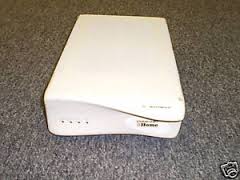OpenSource Ghost
Limp Gawd
- Joined
- Feb 14, 2022
- Messages
- 223
I know what I want/need from a router, but I don't know much about modems. Most of the time I let ISP supply gateway units which I place in bridged mode. If I am to go with a personal modem, then for what features should I look? My ISP uses DOCSIS 3.1 cable network. I don't know enough about modems and how they work to even know whether they can offer/lack additional security or whichever other benefits.
My current modem is mostly fine, but it is very sensitive to static. About once a month ISP's modem dashboard starts showing high number of correctables and even a higher number of uncorrectables. ISP suggests to unscrew coax cable and touch the exposed part with something metal or just my hand to get rid of static. That actually works and the problem goes away for another month or so. I also don't like how much power my ISP exercises over its own hardware, even if rent is paid off entirely. My ISP can login to its own gateways to make any changes it desires without first notifying the customer or letting the customer know afterwards. For example, my ISP's gateway firmware updates reset gatgeway itself and it isn't an issue if it is bridged, but if in router mode, then all NAT/firewall rules get wiped... How hard can it be to notify the customer about scheduled maintence?
My current modem is mostly fine, but it is very sensitive to static. About once a month ISP's modem dashboard starts showing high number of correctables and even a higher number of uncorrectables. ISP suggests to unscrew coax cable and touch the exposed part with something metal or just my hand to get rid of static. That actually works and the problem goes away for another month or so. I also don't like how much power my ISP exercises over its own hardware, even if rent is paid off entirely. My ISP can login to its own gateways to make any changes it desires without first notifying the customer or letting the customer know afterwards. For example, my ISP's gateway firmware updates reset gatgeway itself and it isn't an issue if it is bridged, but if in router mode, then all NAT/firewall rules get wiped... How hard can it be to notify the customer about scheduled maintence?
![[H]ard|Forum](/styles/hardforum/xenforo/logo_dark.png)
 So huge value from getting one used.
So huge value from getting one used.